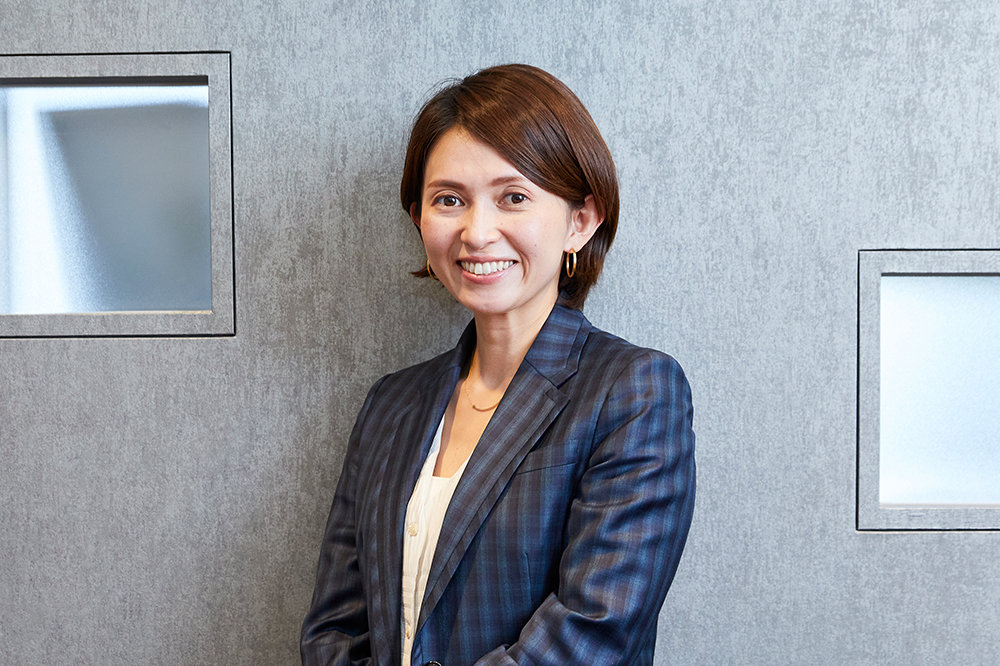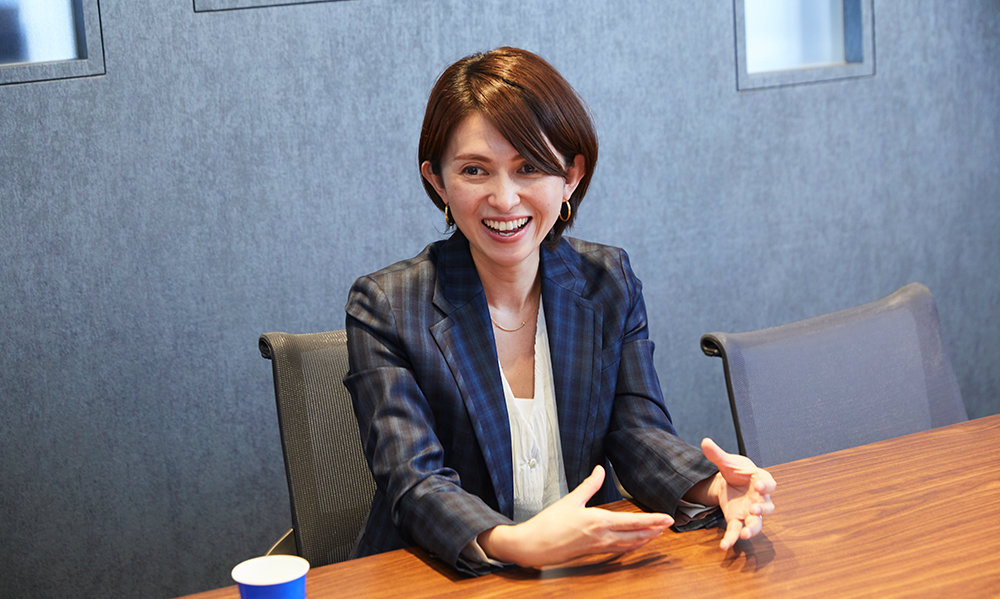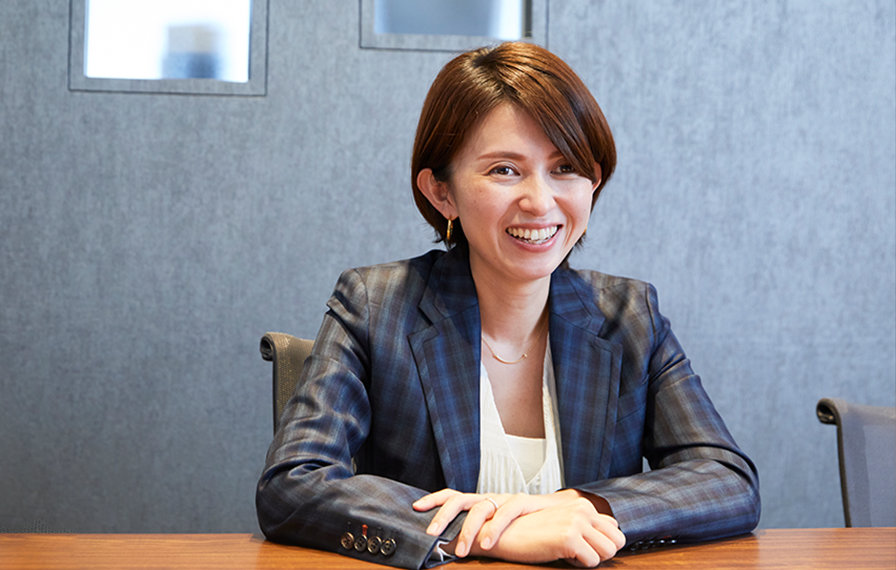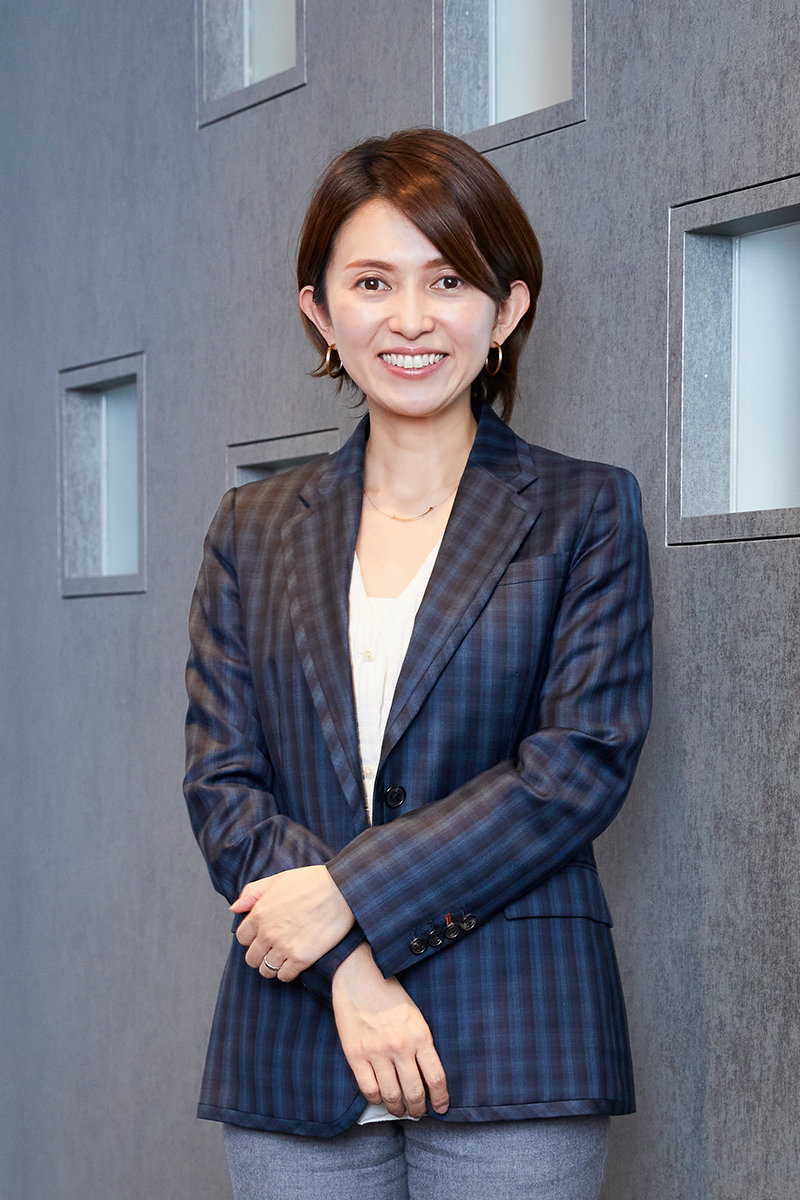Cofounder and CHO (Chief Happiness Officer) Ideal Leaders Co., Ltd.
2005 B.A., Division of Natural Sciences (then), College of Liberal Arts
How the Free Academic Environment at ICU Helped Me Find My Authentic Self

Consultants as "Support Runners" Helping Companies to Realize Their Purpose
I work at a consulting firm called Ideal Leaders, which started out as an in-house venture launched by Nomura Research Institute. The biggest characteristic of our work is the focus we place on "purpose" in our consulting. Purpose in this sense is an answer to the question "What is this company's raison d'être?" In recent years, the idea of purpose has been gaining traction alongside traditional concepts like "mission" and "vision" in companies' corporate philosophies. Drawing up a purpose can help companies to create a consistent strategy and cultivate a sense of unity. Employees who identify with a company's purpose are likely to be more motivated to reach their full potential, and products and services developed from a strong sense of corporate purpose are more likely to resonate and find support with customers. These are just a few of the many positives that can come from a well-defined purpose.
The specific methods and approaches we use in our consulting also differ from those used by other companies. People tend to imagine consultants analyzing huge amounts of information about the state of a client company's business, its organization, and its competitors, and then compiling a thick report . . . That's not what we do. Our approach is based on coaching techniques and ideas. We believe that the answer already lies within the client, and that our job is to help bring it out. For example, let's say a client company wants to draw up a vision for where the company will be in 30 years. Rather than concentrating on the specifics of the vision, we see our role as helping to design and steer the thinking process. We're kind of a support runner, if you like. A proposal that incorporates input and ideas from people who are directly involved in a company is much more likely to become a reality than something that has been pushed onto a company from the outside by an external consultant.
My official role at the company is CHO, or Chief Happiness Officer. This is a job title that's still quite unusual in Japan, although it's starting to become more common in other countries. In surveys on positive psychology, studies have shown that people who are happy at work are three times more creative than unhappy employees, and that happiness can boost productivity and sales by 30% or more. Trying to achieve a 30% productivity boost by using other methods would require a huge amount of effort. But if it can be achieved by improving employee happiness, that's a big plus for the organization and for the individual employees as well. Everyone wins! Guided by this concept, I define my purpose as helping to create a society full of people who are happy in their work. I'm involved in all kinds of activities to achieve this, including surveys on employee happiness levels and measures to improve employee happiness at client companies, and seminars for large numbers of people. In 2018, I published a book on the subject.

How a Varied Curriculum Helped Develop Powers of Dialogue and Discussion
One reason why I decided to apply to ICU was that I felt skeptical about the division of subjects into "humanities" and "sciences." In high school, my favorite subjects were mathematics and world history, and it seemed strange that those subjects were separated into totally different departments at most universities. This was part of what attracted me to the liberal arts education on offer at ICU, which allows students to study freely, without a strong divide between the two disciplines.
After entering ICU, I studied information science in what was then the Division of Science. I was able to study programing, which was something that was very meaningful now I look back on it. But at the time I focused my energy on making the most of the opportunity offered by a liberal arts education to study a wide range of fields. Economics, sociology, French . . . I took classes in all the subjects that interested me.
One of those was a fascinating class taught by Professor Yoichiro Murakami (now an ICU Professor Emeritus) on "Science, Technology and Society." I became passionate about the subject. More than the science and technology itself, fascinating as that was, I was interested in the idea of thinking about how science and technology is used and applied in society. Professor Murakami belonged to the Division of Humanities, as it was then, a different division from mine, but I applied to study with him as my advisor for my senior thesis, and took a research seminar with him in my final year. This freedom to study in a different division from my major and to follow a combined program of study across different disciplines is something unique to ICU, as far as I know.
A lot of the knowledge and insights I learned from this approach are still directly relevant to the work I do today. The idea of a multi-stakeholder dialogue approach to problems, in which people come together from diverse positions to find solutions to a problem through dialogue, for example, is one that I draw on in all kinds of settings today.
When I entered ICU, I didn't have a clear idea of what I wanted to study. It was thanks to the liberal arts approach that I was able to discover what I really wanted to do. ICU is also passionate about small-group teaching. There were only three students in the classroom sometimes. In that kind of situation, the sense of a stark division between the professor and students tends to fade a bit, and we would engage in wide-ranging discussions sometimes. The professor might suggest a topic to discuss, and off we would go. Today, it's possible to find all kinds of information online, so in some ways I feel that the traditional way of teaching, where the professor provides the correct answer and the students copy it into their notebooks, isn't so useful in real life. From my own experience, I feel that the ICU approach to learning, where you are encouraged to think independently and to debate issues by listening to other people's opinions, is much more useful in a variety of real-life settings after graduation.

How the Academic Environment at ICU Helped Foster a Work Style That Is Authentically "Me"
There is no such thing as routine work in consulting. Every job is a new challenge. No matter what the subject, you start from zero, without any preconceived ideas. This makes diverse perspectives essential. People imagine consulting as a profession that requires lots of specialized expertise, but in fact rather than an in-depth knowledge of one field, what you really need is experience in a wide range of fields, and an attitude of fearless open-mindedness. You don't need to have all the information at your fingertips to tackle a problem. Sometimes you might turn to an expert for advice. What's crucial then is that you have the flexibility and the background to understand enough of that expert advice to grasp the position and see what you should do. In fact, I think I learned all the qualities I need in my work as a consultant from the liberal arts education I received at ICU.
As Chief Happiness Officer, it's obviously important for me to be happy in my own work. I believe that an important element in finding fulfillment in your work is the idea of "authenticity." Does your job allow you to be yourself? Can you make your own choices, to make the most of your strengths? This is another factor that is closely linked to the ICU approach to studying. At ICU, students can make their own choices: things are not pushed on you. At ICU, that's considered quite natural. I think studying in that kind of academic environment nurtured the qualities that have helped me find a work style that feels authentic and allows me to make the most of my personality and strengths.
The environment at ICU, where there is no strict line between academic fields, is ideal in terms of discovering your strengths and developing that sense of authenticity. I can't think of any other university where students can creatively design their own program of study from a diverse range of choices according to what interests them, without being limited by any division between the humanities and the sciences. You can choose to study a wide range of subjects. Or if a student prefers to study a particular field in depth, of course that choice is respected too. The environment at ICU is one in which students are truly free to develop their strengths and grow. It's one of the aspects of ICU that I would really recommend to anyone.
My advice to people when thinking of the job you will do or the kind of place you will work in the future is to ask: Is this a job I will be able to enjoy? Is this a place where I can make the most of my strengths? We spend so much of our lives at work that there are few things more important than finding a job that brings you fulfillment.
Of course, some people might say that you can't know the answer to these questions until you start working. If you find after you've started a job that you aren't enjoying it, I think that's the time to step back and ask yourself why. What points are important to you in your work? After reflecting on this, you can change your behavior accordingly. You might find a different role or a different approach that suits you better in the same workplace, or the process might give you hints for taking on a new challenge.
Profile
Mari Niwa
Cofounder and CHO (Chief Happiness Officer) Ideal Leaders Co., Ltd.
2005 B.A. in Arts and Sciences (Science)
After graduating from ICU, Mari Niwa received an MSc from the University of Sussex in the UK. She joined Nomura Research Institute, Ltd. in 2007; and founded Ideal Leaders Co., Ltd. and became Chief Happiness Officer in 2015. Her work includes well-being improvement projects, executive coaching for top managers and business leaders, and projects to help companies rediscover their purpose. In 2018, she published Papasu manejimento: Shain no shiawase o taisetsu ni suru keiei (Purpose management: Management that values employee happiness), a book on an approach to management focused on employee well-being and improving job fulfillment.




